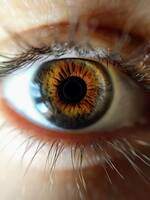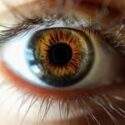
16 May Clarifying Common Myths About Laser Vision Correction
Laser vision correction has emerged as a cornerstone in refractive surgery, offering hope for those burdened by the reliance on glasses or contact lenses. In particular, LASIK procedures have garnered attention for the promise of improved vision. Yet, many individuals hesitate, their decisions clouded by circulating myths.
Debunking Myths Around LASIK’s Safety
The myth surrounding the safety of LASIK surgery is a significant barrier for many potential patients. Questions about the risk of complications are common, with concerns exaggerated by stories in sensationalist media or hearsay. However, clinical studies and an extensive track record of successful LASIK in St Louis surgeries paint a different picture—one where LASIK is shown to be safe and effective, with an impressively low complication rate compared to other elective procedures. Technological advances, such as bladeless lasers and wavefront-guided techniques, have only enhanced LASIK’s safety and precision, increasing success rates.
The Realities of Recovery Time After Vision Surgery
 Many assume that recovery from LASIK or any form of laser vision correction translates into weeks of recovery. Yet, modern LASIK techniques have revolutionized recovery times. It’s not uncommon for patients to experience significant visual improvement within hours post-surgery, with many returning to work and other daily activities within 24 to 48 hours. It’s essential to understand that experiences vary. While there is some mild discomfort and a few restrictions to adhere to in the immediate aftermath to ensure proper healing, the notion of an extended period of downtime is mainly outdated.
Many assume that recovery from LASIK or any form of laser vision correction translates into weeks of recovery. Yet, modern LASIK techniques have revolutionized recovery times. It’s not uncommon for patients to experience significant visual improvement within hours post-surgery, with many returning to work and other daily activities within 24 to 48 hours. It’s essential to understand that experiences vary. While there is some mild discomfort and a few restrictions to adhere to in the immediate aftermath to ensure proper healing, the notion of an extended period of downtime is mainly outdated.
Expectation vs. Reality: Visual Acuity Results
Prospective LASIK patients often enter consultations to achieve a perfect, pristine vision. It’s a natural assumption, yet the reality is nuanced—LASIK can provide most patients with 20/20 vision, but perfect vision is not always guaranteed. Factors such as individual healing patterns, the severity of refractive errors, and unique eye characteristics play roles in the outcome. Nonetheless, most patients achieve results that dramatically reduce, if not eliminate, their dependence on corrective eyewear.
Comparing Laser Vision Correction Techniques
LASIK has become synonymous with laser eye surgery but is not the only option. Procedures like PRK (Photorefractive Keratectomy) and LASEK (Laser-Assisted Sub-Epithelial Keratectomy) are alternative forms of laser vision correction suited to patients who may not qualify for traditional LASIK due to factors like corneal thickness or occupational hazards. Each of these techniques has its indications, benefit profiles, and considerations. Understanding the differences and consulting with a specialized ophthalmologist can illuminate the most appropriate path for vision correction tailored to individual needs.
Long-Term Impact on Eye Health
Misconceptions about the lasting implications of LASIK on one’s ocular health often deter potential candidates. Contrary to such myths, long-term studies have not demonstrated significant adverse effects on eye health attributable to LASIK. The procedure has been a part of ophthalmic practice for over 25 years, and many patients maintain excellent vision well into the future. Coveted for the stability of its outcomes, LASIK’s enduring nature is evidenced by the satisfaction and improved quality of life reported by patients decades post-surgery.
Addressing Concerns: Laser Vision Correction as You Age
Another area of concern for those considering laser vision correction is age. While it’s true that our eyes naturally change as we grow older, this doesn’t automatically disqualify someone from being a good candidate for LASIK or similar procedures. Age-related conditions such as presbyopia or cataracts are considerations that an experienced eye surgeon will evaluate during a pre-operative assessment. It’s paramount to have an in-depth consultation to determine eligibility, factoring in age, overall eye health, lifestyle, and expectations.
Ultimately, demystifying laser vision correction requires a base of solid evidence and clear communication. When considering such life-altering procedures, armed with facts and the guidance of a trusted eye care professional, patients are better equipped to make informed decisions that can lead to improved eyesight and an enhanced quality of life.
The information on MedicalResearch.com is provided for educational purposes only, and is in no way intended to diagnose, cure, or treat any medical or other condition.
Some links may be sponsored. Products are not endorsed.
Always seek the advice of your physician or other qualified health and ask your doctor any questions you may have regarding a medical condition. In addition to all other limitations and disclaimers in this agreement, service provider and its third party providers disclaim any liability or loss in connection with the content provided on this website.
Last Updated on May 16, 2024 by Marie Benz MD FAAD
